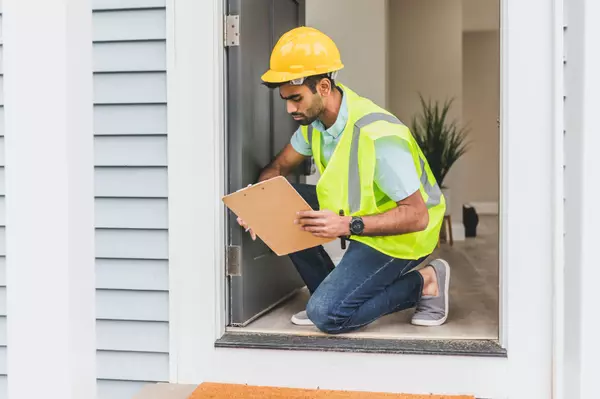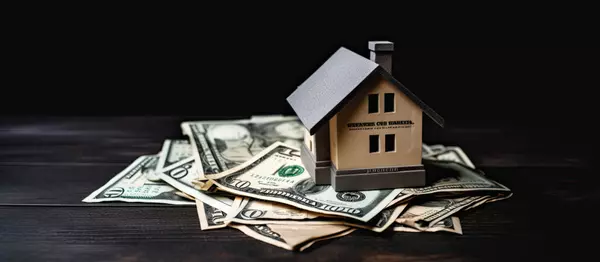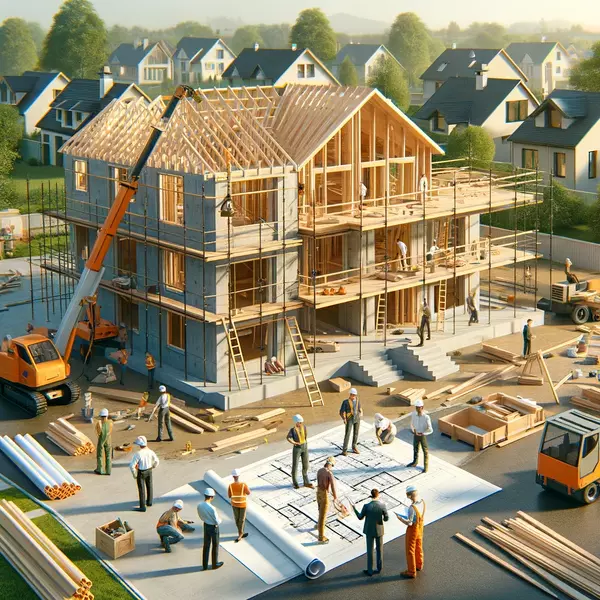What is the Best Day to Buy a Home?

As a potential homebuyer, you may wonder if there is a specific day that is best to make your purchase. While there is no guaranteed answer, there are a few factors to consider when deciding when to buy your new home. Knowing the Market First, it's important to understand that the real estate market is constantly changing and fluctuating. It's impossible to predict when the best day to buy a home will be, but there are some general trends that can be helpful to know. Time of Year One factor to consider is the time of year. During the summer months, the real estate market tends to be more competitive, with more people looking to buy and sell homes. This can drive up prices and make it more difficult to find a good deal. In contrast, the winter months are typically slower, which can lead to more affordable prices and less competition. Another factor to consider is the day of the week. Some experts suggest that Wednesday is the best day to make an offer on a home. This is because many home sellers will review offers on the weekends and may be more likely to accept an offer that comes in mid-week. However, it's also important to keep in mind that the best day to buy a home will vary depending on your personal situation. For example, if you have a specific deadline for when you need to move, you may not have the luxury of waiting for the "perfect" day to buy. It's also important to consider your own financial situation and whether you are able to afford the home you are interested in. Ultimately, the best day to buy a home is the day that works best for you and your family. If you find a home that you love and can afford, it's better to make an offer sooner rather than later. Waiting for the "perfect" day could mean that you miss out on a great opportunity. When it comes to buying a home, there are many factors to consider. While there is no magic formula for determining the best day to buy, keeping an eye on market trends and being prepared to act quickly can help you find the home of your dreams at a price you can afford. Real Estate Agent As a buyer, it's important to work with a trusted real estate agent who can help guide you through the buying process and provide expert advice on market trends and pricing. With the right support and a little bit of patience, you'll be well on your way to finding the perfect home. Contact Shawn Wilmoth REALTOR® today for help finding exactly what you're looking for. www.shawnwilmoth.com
Read MoreThe Hidden Investment Woes of A New Construction Home

Buying a new construction home seems like an ideal idea - no one has lived in it, brand new features, and modern designs. But underneath the perceived flawless exterior lies investment issues that many homebuyers do not initially consider. In this blog, we will discuss why a new construction home is not always the best investment for buyers in terms of real estate. Higher Prices Many buyers think that purchasing a new construction home will help them save money on costly repairs or renovations that come with older homes, but this is not always the case. A new construction home often comes at a higher price than resale homes because builders need to include the costs of land, materials, and professional fees. If you are looking for a budget-friendly option, resale homes might be a better choice. Lower Resale Value New construction homes can depreciate rather quickly over time, especially if the builder has other developments nearby. If you plan to sell your new home in the future, you might end up losing your investment due to low resale values and competition with other new construction homes in the area. Limited Room for Negotiation When buying a new construction home, buyers do not have many options to negotiate prices or features compared to buying a resale home. Builders have set prices and set designs, and any changes you want might come at an additional cost. This lack of flexibility can hurt your budget and leave you with features you did not want or need. Longer Wait Times Building a new construction home takes time, and often construction can take longer than anticipated due to bad weather or unforeseen construction issues. This can be frustrating for buyers who have already sold their current home and have nowhere else to go. Moving into a new construction home might take a while, and waiting too long might leave you with a mortgage and rental fees. Unforeseen Issues A new construction home is not a guarantee for a perfect home. You might face issues after move-in, such as faulty wiring, plumbing issues, or poor quality materials used in the construction process. Fixing these issues might come at additional costs that were not anticipated, leaving some buyers feeling cheated and ultimately costing them more than they budgeted for. A new construction home might seem like a smart investment, but in reality, it comes with a host of issues that many buyers do not consider. From higher prices to lower resale values and limited negotiation options, new construction homes are not always the best investment for real estate buyers. If you are searching for the right home to invest in, consider exploring resale homes, which can offer better value, a range of features and settings, and more affordability. In the end, investing your time in the right home can save you money and spare you headaches in the future. Contact Shawn Wilmoth REALTOR® today for help finding exactly what you're looking for. www.shawnwilmoth.com
Read MoreHow to Find a Good Real Estate Agent in Knoxville, TN

The search for a real estate agent can be a daunting task, especially if you are unfamiliar with the area. With so many agents to choose from, how do you find one that is right for you? Knoxville, TN is a diverse city that offers a plethora of housing options, making it challenging to know where to begin your search. In this blog post, we will explore what you should consider when looking for a good real estate agent in Knoxville, TN, and highlight one of the area's top realtors - Shawn Wilmoth REALTOR®. Step 1: Look for Referrals When searching for a good real estate agent in Knoxville, TN, the first step should always involve asking for referrals. Friends, family, and co-workers who have recently bought or sold property can be a valuable resource in your search. Start by compiling a list of names, and then investigate each one further. Step 2: Credentials and Experience Once you’ve narrowed down your list of potential agents, it's crucial to check their credentials and experience. A good real estate agent should be licensed and have experience dealing with the type of property you are looking to buy or sell. Don't be afraid to ask for their credentials and to investigate their experience. Step 3: Communication and Availability When looking for a good real estate agent, communication and availability are key. An agent who is prompt in answering your calls and emails, and willing to provide regular updates on your property's status, is vital. Look for an agent who is willing to go the extra mile to ensure your needs are met. Step 4: Marketing and Networking A good real estate agent in Knoxville, TN should have an understanding of the local market, as well as the ability to market your property effectively. A solid marketing strategy should include a mix of traditional and digital marketing efforts. Additionally, a well-connected agent with a strong network can provide valuable connections and resources for selling or buying a property. Shawn Wilmoth REALTOR® Shawn Wilmoth is a top-rated real estate agent in Knoxville, TN, who brings expertise and professionalism to every client engagement. Shawn's knowledge of the local market coupled with his excellent communication and marketing skills make him an ideal partner for those looking to buy or sell property. As a resident of Knoxville, Shawn understands the city's nuances and is committed to helping his clients achieve their real estate goals. Finding a good real estate agent in Knoxville, TN requires diligence, research, and a bit of patience. Look for agents with credentials, experience, and excellent communication skills. Don't be afraid to lean on referrals and investigate your prospective agents thoroughly. Shawn Wilmoth REALTOR® is an exceptional real estate agent in Knoxville, TN, who brings professionalism, expertise and a deep understanding of the local market to every client engagement. His holistic approach to real estate sets him apart from others, and his commitment to helping his clients achieve their goals has earned him a reputation as one of the area's top realtors. Contact Shawn Wilmoth REALTOR® today for help finding exactly what you're looking for. www.shawnwilmoth.com
Read MoreWhat Does a Pending Deal Mean in Terms of Real Estate?

Are you buying or selling a home and heard the term “pending deal?” What does this mean, and why is it significant? When a home is listed for sale, buyers make offers, and once the seller accepts, a contract is written and executed. This contract comes with various contingencies, including a pending status. We will explore what a pending status means and how it affects home buyers, renters, sellers, and visitors. What does pending status mean? A pending status means that an offer has been made on the property, and the seller has accepted the offer. However, the deal is not yet final as there are still contingencies to be met before the sale can close. Contingencies may include a home inspection, financing, and appraisal. These contingencies must be met before the sale can close. Until then, the property is considered to be in a pending status. What happens during the pending period? During the pending period, the buyer will perform any necessary due diligenc. That may include scheduling a home inspection and appraisal. The home inspection may uncover defects or issues that need to be resolved, usually resulting in another round of negotiations. The buyer may also need to obtain financing for the purchase. Pending status lasts until all contingencies are met, and the sale is ready to close. Why is pending status important to buyers? When a property is in a pending status, it is no longer available for sale. If you’re looking to buy a property and see it listed as pending, you can still make an offer. It’s possible that the seller won’t consider it until the current pending deal falls through. It’s rare for a seller to accept another offer while their property is in pending status unless the initial offer falls through. What about sellers? For sellers, a pending deal is a good sign that their property will sell soon. However, the deal is not final until all contingencies are met, and the sale is closed. There is always a chance that the buyer may back out during the pending period if they are unable to meet the contingencies. For this reason, sellers can still accept backup offers. A backup offer is a secondary offer from a different buyer, just in case the initial pending deal falls through. What about renters and visitors? For renters, a pending deal doesn’t affect them unless they are interested in buying the property they are renting. Visitors who are considering buying a home can use pending status as a way to gauge the level of competition in the market. If a property is pending within a few days of being listed, it means that the market is hot, and buyers must act quickly to make an offer. If you’re buying or selling a home, then understanding what pending status means is essential. Buyers should be aware that a pending status means that the property is no longer available for sale. Sellers should know that the deal is not final until all contingencies are met, and they can still accept backup offers. The decision to accept backup offers is ultimately up to the seller, and they are under no obligation to do so. Pending deals may be a sign that the property will sell soon, but there is no guarantee until all contingencies are met, and the sale is finalized. Contact Shawn Wilmoth REALTOR® today for help finding exactly what you're looking for. www.shawnwilmoth.com
Read MoreProtect Yourself as a Home or Commercial Property Buyer

Buying a home or commercial property is a major investment that comes with a high level of financial risk. You want to make sure that your investment is protected. But, how can you protect yourself as a home or commercial property buyer? In this blog post, we'll provide you with a comprehensive guide to protecting yourself as a real estate buyer, complete with helpful tips and expert advice. 1. Do Your Research One of the most important things you can do to protect yourself as a property buyer is to do your research. Research the location, the neighborhood, the property, the market, and the real estate agent you're dealing with. This will help ensure that you're making an informed decision and that you won't be taken advantage of. 2. Hire a Real Estate Attorney A real estate attorney can help protect your interests as a buyer. They can review contracts, negotiate on your behalf, and advise you on any legal issues that may arise. Hiring an attorney is especially important when buying a commercial property, as the legal issues involved are often more complex. 3. Get a Home Inspection Before closing a deal, make sure to get a home inspection. A home inspection can reveal any potential problems with the property that would otherwise have been missed. If any issues are found, use this information to negotiate repairs or a lower price with the seller. 4. Purchase Title Insurance Title insurance is a type of insurance that protects you against any losses that may occur as a result of defects in the title of the property. While it's not required in all states, it's recommended that you purchase title insurance to protect yourself against any potential loss. 5. Understand Your Mortgage If you're taking out a mortgage to finance your property purchase, it's important to understand the terms and conditions of your mortgage. Make sure to carefully review the agreement and ask any questions you may have. Don't sign anything until you fully understand your obligations. 6. Trust Your Gut Finally, when it comes to buying real estate, always trust your gut. If something doesn't feel right, it probably isn't. Don't be afraid to walk away from a deal if something seems off. Remember, you're the one investing your hard-earned money, so make sure you're comfortable with your decision. Buying a home or commercial property can be a stressful experience, but by following these tips, you can protect yourself and your investment. Do your research, hire a real estate attorney, get a home inspection, purchase title insurance, understand your mortgage, and trust your gut. With these steps, you can be confident that you're making an informed decision and safeguarding your financial future. Contact Shawn Wilmoth REALTOR® today for help finding exactly what you're looking for. www.shawnwilmoth.com
Read MoreTop 10 Questions Asked When Buying Commercial Real Estate

Purchasing commercial real estate can be a lucrative investment, but it can also be a complex process. It involves a significant amount of time, money, and resources. Before committing to a commercial property, it’s essential to do your due diligence and ask the right questions. In this blog post, we’ll discuss the top 10 questions you should ask when buying commercial property. 1. What is the property's zoning? Zoning laws regulate land use in specific areas, such as residential, commercial, or industrial. It’s important to understand the zoning of the property you’re buying to determine what kind of development is allowed. 2. What is the condition of the property? Before purchasing, make sure you commission a thorough inspection to assess the condition of the property. This will help you identify any underlying issues, such as structural problems or environmental hazards, that could affect the property's value. 3. What are the financials? Review financial statements, including income and expenses, to ensure that this investment is feasible. You need to know how much revenue the property generates, what the expenses are, and what kind of cash flow you can expect. This will help you determine the potential return on investment (ROI). 4. What are the tenant lease agreements? If the property is occupied, be sure to review all tenant lease agreements. This includes the lease terms, rent amount, and expiration dates. If you're taking over existing tenants, you'll need to determine how to handle the transition. 5. What are the property’s operating costs? Operating costs can include property taxes, insurance, maintenance, and utilities. Review these expenses carefully to determine how much it will cost to maintain the property and ensure that you have a realistic understanding of these costs. 6. What are the market and economic conditions? Be sure to research the local real estate market and economic conditions. This includes vacancy rates, supply and demand, and current rental rates. This will help you to determine the property’s viability as an investment. 7. What is the property’s history? Review the property’s history, including purchase price, sales history, previous owners, and any legal issues. This will help you to uncover any issues or concerns with the property that could affect your investment. 8. What are the development plans for the area? Research any proposed or upcoming development plans for the area to understand how they might affect the property's value and desirability. This can include new roads, infrastructure, or zoning changes. 9. What are the property’s environmental risks? An environmental assessment of the property is essential to ensure that there are no environmental risks or issues that could affect its value. This can include soil contamination, water pollution, or hazardous waste. 10. What are the closing costs? Finally, you must understand the closing costs associated with purchasing commercial real estate. These can include legal fees, transfer taxes, appraisal fees, and title fees. Make sure you have a clear understanding of these costs to ensure that they fit within your budget. Purchasing commercial real estate requires careful consideration, research, and due diligence. By asking the right questions, you can ensure that you are making an informed decision that aligns with your investment goals. These ten questions are a great starting point, but you should also consult with real estate professionals, attorneys, and financial advisors to ensure that you have a comprehensive understanding of the property and its potential risks and opportunities. Contact Shawn Wilmoth REALTOR® today for help finding exactly what you're looking for. www.shawnwilmoth.com
Read MoreUnderstanding the Basics of Property Appraisal

Buying or renting a property is one of the most significant investments one can make in their lifetime. As a homeowner, seller, or potential buyer, it is essential to make informed decisions. Informed decisions ensure that you invest your money at a fair market value. A property appraisal is a critical process used to determine the value of a property. Additionally, it is an integral part of any real estate transaction. In this blog post, we will discuss what property appraisal is and how it works. What Is a Property Appraisal? A property appraisal is the process of estimating the fair market value of a property by a licensed professional appraiser. The appraiser uses a combination of data, analysis, and now more and more AI-powered tools that are available in the market to establish the value of the property. The value is determined by considering several factors. Such as the property's location, age, size, condition, and features. The appraiser's primary objective is to provide an unbiased opinion of the property's worth in relation to its current market trends. How Does it Work? An appraisal typically takes between a few days and up to a few weeks, depending on the complexity of the property. The appraiser starts by collecting data on the property, such as its size, location, and features. Then they use this information and several techniques to determine its value. Additionally, they might compare the property to recent sales of similar properties in the area or, in more complex evaluations, conduct an income approach analysis used to estimate a rental value for the property. The appraiser also researches local market trends and any relevant zoning and urban planning laws that impact the valuation process. Why Do You Need One? As a buyer, you need an appraisal to ensure that you are paying the right amount for the property. As a seller, you need to establish a reasonable asking price that is not too high or too low. If you are a homeowner looking to refinance your mortgage, you might also need an appraisal. It could help the lender determine if the value of the property is enough to cover your new loan. An appraisal is a necessary step in any real estate transaction, and without it, you could either pay more than the property is worth or sell below its market value. The Cost of an Appraisal The cost of a property appraisal varies, depending on the size and complexity of the property. However, the standard fee for a residential appraisal ranges between $300 and $500. The price might change depending on the location or the urgency of the appraisal. As an investment, an appraisal is well worth the fee to ensure you're working with a qualified appraiser. You want to make sure that the appraisal is thorough and accurate to avoid potential legal issues in the future. An appraisal is a crucial step in any real estate transaction, and understanding the process, importance, and cost is essential whether you're a buyer, seller, or homeowner. With this information, you're better equipped to know what to expect, what questions to ask, and how to ensure that you're making an informed decision. By hiring a qualified appraiser, you can be confident that they will provide you with an accurate and unbiased opinion of your property's worth, giving you peace of mind and confidence in your investment. Contact Shawn Wilmoth REALTOR® today for help finding exactly what you're looking for. www.shawnwilmoth.com
Read MoreThe Three Aspects of Valuation for Commercial Properties: A Comprehensive Guide

If you're seeking to buy, sell, or rent a commercial property, understanding how the property value is assessed is crucial. The value of a commercial property depends on several factors. Some include comparative sale value, construction cost, and capitalization rate. These aspects help not only property owners but also buyers and renters to know what makes a commercial property a good investment. In this blog post, we break down the three key components of a commercial property's value, how they work, and why they matter. Comparative Sale Value: The first and most commonly used valuation method is the Comparative Sale Value (CSV). It is the assessment of a property value by comparing it to sales data from similar properties in the same location. It analyzes the prices of recently sold similar buildings, appraisers can estimate the current value of a property. Thus, if a property is in a highly desirable area, its value will likely be higher, and vice versa. A property's condition, location, and features are considered when performing CSV. It can be an ambiguous method because standardizing properties is not easy. Additionally, some differences that add value may not be visible. Construction Cost: The second aspect of property valuation is construction cost. This method calculates the value of the property by totaling the costs associated with construction. While calculating the construction cost, property appraisers consider the type of materials used, the labor cost, and the time needed. Construction cost valuation is often used for newly built properties since their depreciated value isn't yet being considered. The older a building is, the more depreciated it becomes because of the passage of time, which affects its worth. Capitalization Rate: The third valuable metric is the capitalization rate, also known as CAP rate. This method sets the value of an investment property by dividing the net operating income by its price. The net operating income refers to the potential yearly income that the property generates. From market rent and extra income from the property's amenities, less any operating expenses. In short, CAP rate reflects the opportunity cost you can incur by investing in a single property. A lower cap rate means better investment opportunities. Location, Location, Location: While all three metrics mentioned above play an essential role in determining the value of a commercial property, location is the icing on the cake. Regardless of the property's age and condition, it's difficult to value it correctly if it's not situated in a good location. A commercial property located at the right place and in the right market is going to be worth more. It guarantees better traffic, customers, and profitability. An appraiser will always keep in mind the location's potential growth when determining the final value of a property. In summary, the three aspects of valuating commercial properties are Comparative Sale Value, Construction Cost, and Capitalization Rate. An understanding of these metrics is crucial when buying or renting commercial properties. The location of a property can make a vast difference in its value, but these other factors also impact the price. Take these key aspects into consideration when making commercial property investments. Owners, renters, and buyers can make informed decisions on which properties to invest in. Always remember, commercial property is an excellent source of investment, and keeping an eye on its value is always essential. Contact Shawn Wilmoth REALTOR® today for help finding exactly what you're looking for. www.shawnwilmoth.com
Read MoreEast Tennessee Commercial Properties

Growing East Tennessee It is no secret that east Tennessee and the Knoxville area is growing. Folks from cities all over the country are looking for more peaceful areas with less crime and fresher air. As cities like Knoxville grow, areas surrounding become hot spots for residential growth. And, with residential growth comes new business opportunities. There is also something to be said about the area and how one can experience all four seasons. Mild winters are a draw for those fleeing the freezing tempatures of some of the northern states. Commercial Property Available Located in beautiful New Market, Tennessee, this viable commercial property is ready for the right owner to reestablish a business and conduct commerce. This property has over 200 feet of road frontage on state Highway 11E with a crossover at one end of the lot for easy access. Once used as a gas station, a block plant and a car dealership this commercial real estate has many options for future use. Several outbuildings are about the property as well. Two recently inspected and approved fuel tanks are located on the property and ready for use. New Market is a growing community but no so much that there are a lot of restrictions. Highway 11E also known as Andrew Johnson Highway which this property adjoins is a daily travel route for commuters heading to Knoxville to the west or to Morristown to the east. Other properties along this stretch of highway have developed over the past few years and are now several businesses around and near the property such as Family Dollar Stores, Service electric and a kidney dialysis center. This commercial property is just 20 miles from Knoxville, which is not only one of the fastest growing cities in the United States but it also the third largest city in the state. The property is just 15 miles from Morristown, Tennessee. Morristown is a city known for being one of the largest, if not the largest, industrial hubs in the state. And, last, but not least New Market is less than 30 miles from Sevier County. Sevier County consists of Pigeon Forge, one of the most visited entertainment cities in the United States. And, also Gatlinburg, which is the entrance to the Great Smoky Mountains National Park. Other properties along this stretch of highway have developed over the past few years and are now several businesses around and near the property such as Family Dollar Stores, Service electric and a kidney dialysis center. This area of east Tennessee and the New Market is a growing area with great opportunities for business or investment. Don’t let this one get away. It help to have an experience commercial realtor to make the process go smoothly. Contact Shawn Wilmoth today for more information or for a showing on this commercial property.
Read More
Categories
- All Blogs 1000
- Airbnb Realtor 13
- Barndominium 6
- Buying a home 57
- California Buyers 17
- Commercial Broker 2
- Commercial Property 33
- DR Horton Homes 5
- East Tennessee 59
- Experienced Realtor 40
- Experienced Tennessee Realtor 67
- For-Sale By Owner 24
- FSBO 17
- Gatlinburg 30
- Gatlinburg Cabins for Sale 2
- Gatlinburg Rental Homes for Sale 6
- How to pick a realtor 14
- Industrial Property 9
- Invesment Real Estate Gatlinburg 4
- Investment Property Realtor 27
- Knoxville 66
- Knoxville Jobs 1
- Knoxville Zillow Reviews 1
- Listing your home 30
- Mobile Homes 7
- Modular Homes 9
- Morristown 28
- Mortgage 3
- New build homes 24
- Price of Homes in Knoxville 10
- Realtor Blog Feed 3
- Reccomended Tennessee Realtor 48
- Refinancing 2
- Rental Property 7
- Retail Building sites 4
- Retail Land for Sale 3
- Selling a home 19
- Short-Term Rentals 2
- Smithbuilt Homes 2
- Strawberry Plains 1
- Tennessee 39
- Tennessee Lenders 3
- tract homes 1
- Vacant Commercial Land 4
- Warehouse for Sale 1
- Zillow Agent 1
Recent Posts










